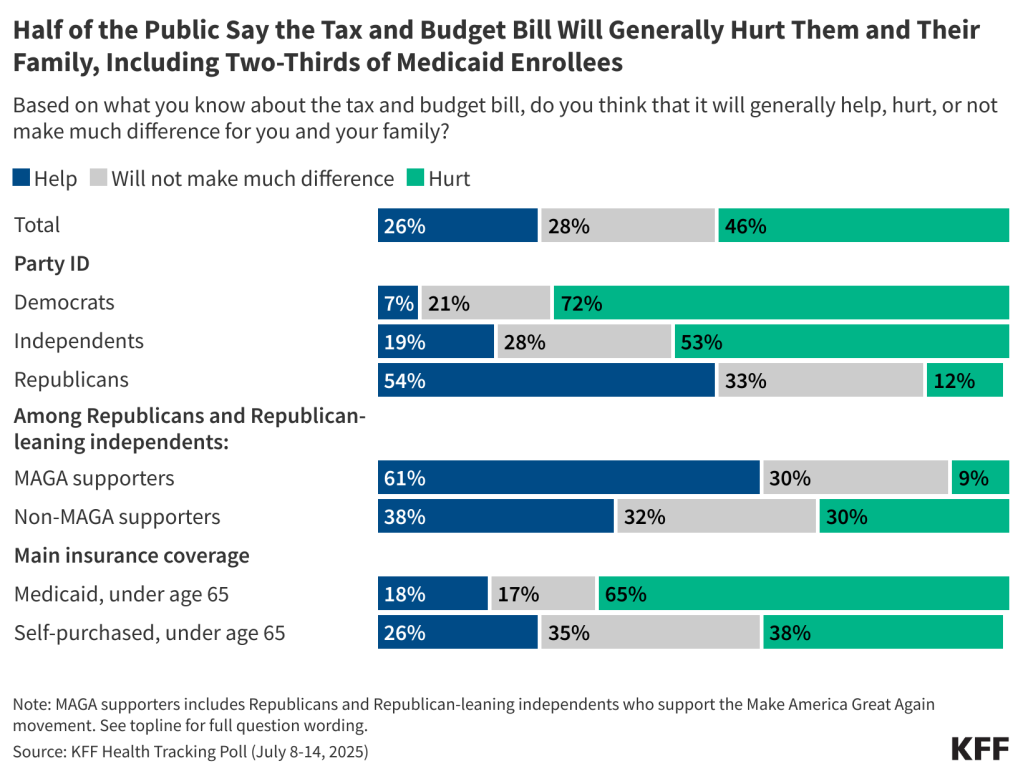Poll: New Tax and Budget Law Remains Largely Unpopular; Nearly Half Say It Will Hurt Their Families, though Republicans and MAGA Supporters Are More Optimistic
Nearly half (46%) of the public says that they expect the new tax and budget law signed by President Trump earlier this month to generally hurt them and their families, nearly twice the share (26%) who say it will generally help, a new KFF Health Tracking Poll finds. Among people who rely on Medicaid for their health coverage, two-thirds (65%) say it will hurt their families compared to one in five (18%) who say it will help.
The law combines tax cuts with spending reductions, including cuts and changes to Medicaid and the Affordable Care Act that are expected to leave millions more people without health insurance. Among people with household incomes under $40,000 annually, most (56%) say that the law will hurt them.
Perceptions of how the law will impact people’s families varies among partisans. Most Democrats (72%) and just over half of independents (53%) say it will mostly hurt them and their families, while just over half of Republicans (54%) say it will help. Those who identify as supporters of President Trump’s “Make America Great Again” movement are more than five times more likely to say the law will help their families (61%) than hurt (9%).

The law itself remains largely unpopular, with many more people holding unfavorable views (63%) than favorable ones (36%).
The split is unchanged from June before the legislation dubbed the “big beautiful bill” by President Trump became law, though the new poll shows a sharper partisan divide, with Republicans more likely to view the law favorably and Democrats more likely to view it unfavorably.
Two-thirds (68%) of the public now say that they’ve heard “a lot” or “some” about the legislation, up from half who said the same in June.
The poll also examines what people are seeing about the legislation on social media. Most (73%), including similar shares of partisans, say they saw information about the bill on social media in the past month.
Among those who saw information about the legislation on social media, about half (47%) say most of the content they saw was in opposition to the legislation, while about one in ten (11%) say it was mostly in support. The others (41%) say they saw a mix of both.
Designed and analyzed by public opinion researchers at KFF, this survey was conducted July 8-14, 2025, online and by telephone among a nationally representative sample of 1,283 U.S. adults in English and in Spanish. The margin of sampling error is plus or minus 3 percentage points for the full sample. For results based on other subgroups, the margin of sampling error may be higher.